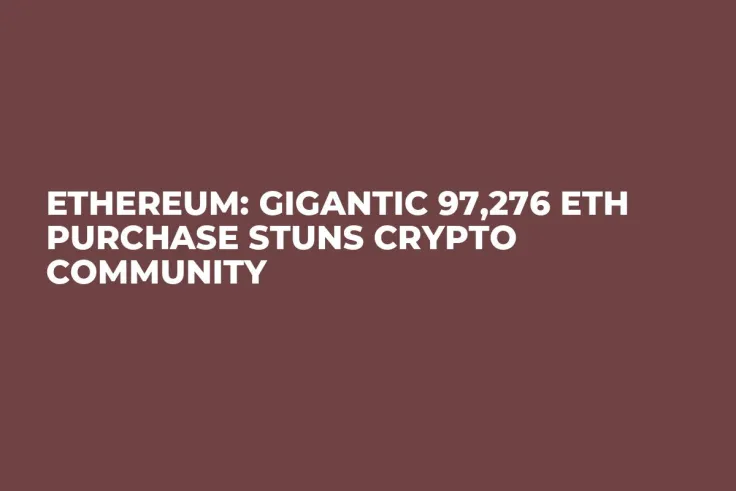
Disclaimer: The opinions expressed by our writers are their own and do not represent the views of U.Today. The financial and market information provided on U.Today is intended for informational purposes only. U.Today is not liable for any financial losses incurred while trading cryptocurrencies. Conduct your own research by contacting financial experts before making any investment decisions. We believe that all content is accurate as of the date of publication, but certain offers mentioned may no longer be available.
A massive purchase of 97,276 Ethereum (ETH) has left the crypto community mystified and speculating about the implications for the market.
PulseChain, a contentious project founded by Richard Heart, the founder of HEX and its decentralized exchange, PulseX, made a massive purchase of 97,276 ETH worth $363 million, triggering speculation in the crypto space.
According to Lookonchain, PulseX and PulseChain purchased 97,296 ETH worth $363.66 million in barely two days using 11 wallets, spending a total of 363.66 million DAI at an average price of $3,738.
The jaw-dropping purchase piqued the interest of traders, investors and analysts alike, raising questions about the project's motives.
More puzzling is the fact that some believe that the Ethereum purchase was made at a local price peak.
The last two days saw seesaw price action for the ETH price owing to a sharp spike in volatility. For instance, on March 5, Ethereum swung between highs and lows of $3,829 and $3,205, as it experienced a dramatic price drop.
Ethereum reached a high of $3,903 on March 6, up from a low of $3,503, and is currently retreating. At the time of writing, ETH has dropped 2.66% in the previous 24 hours to $3,784, implying marginal gains on the 97,296 ETH stash at current prices.
While the project's motives for acquiring such a gigantic stash of ETH remain unknown, Ethereum continues to see strong demand from both retail and institutional investors, who are willing to bet big on its long-term potential.
Presently, expectations are rising ahead of the much anticipated Dencun upgrade due on March 13, which will introduce proto-danksharding that aims to make layer-2 transactions as cheap as possible for users.

 Vladislav Sopov
Vladislav Sopov Dan Burgin
Dan Burgin